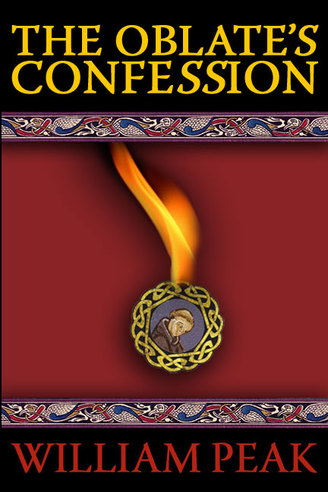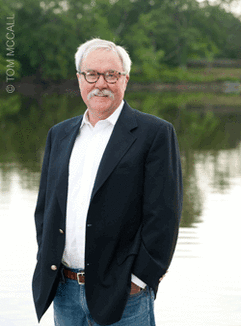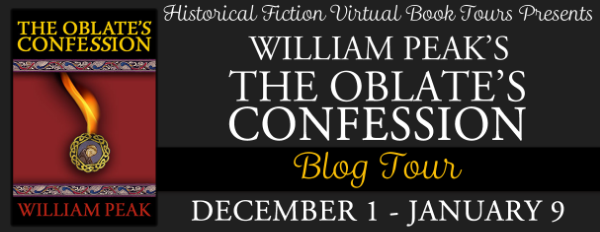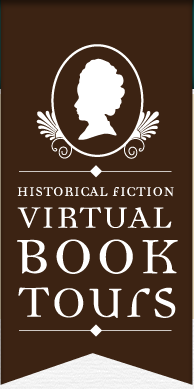
Publication Date: December 2, 2014
Secant Publishing
Formats: eBook, Hardcover
Genre: Historical Fiction
Set in 7th century England, The Oblate’s Confession tells the story of Winwaed, a boy who – in a practice common at the time – is donated by his father to a local monastery. In a countryside wracked by plague and war, the child comes to serve as a regular messenger between the monastery and a hermit living on a nearby mountain. Missing his father, he finds a surrogate in the hermit, an old man who teaches him woodcraft, the practice of contemplative prayer, and, ultimately, the true meaning of fatherhood. When the boy’s natural father visits the monastery and asks him to pray for the death of his enemy – an enemy who turns out to be the child’s monastic superior – the boy’s life is thrown into turmoil. It is the struggle Winawed undergoes to answer the questions – Who is my father? Whom am I to obey? – that animates, and finally necessitates, The Oblate’s Confession.
While entirely a work of fiction, the novel’s background is historically accurate: all the kings and queens named really lived, all the political divisions and rivalries actually existed, and each of the plagues that visit the author’s imagined monastery did in fact ravage that long-ago world. In the midst of a tale that touches the human in all of us, readers will find themselves treated to a history of the “Dark Ages” unlike anything available today outside of textbooks and original source material.
Buy the Book
Amazon US
Barnes & Noble
Book Depository
Review:
A young boy is given to Redestone monastery in 7th century England. Winwaed's father has made a promise during the war that his next born son would go to God, so Winwaed is donated at a young age. As the country encounters wars, plagues and political upheaval, Winwaed watches from the confines of the monastery grounds. As he grown Winwaed earns the position as the one to climb a nearby mountain to deliver supplies to a monk who has decided to live as a hermit. The hermit becomes a father figure to Winwaed, teaching him about nature and deep prayer. Winwaed begins to enjoy his trips up the mountain. When Winwaed's biological father arrives at the monastery, Winwaed becomes torn. His father delights him with stories of war and his mother; then he asks Winwaed to pray for the fall of another at the monastery. Winwaed becomes confused and begins to question his life.
Written as a confession from the perspective of a young boy, Winwaed's perspective becomes a window into life in the Dark Ages, written with a simplistic beauty that brought to life the everyday workings of a monastery. Through Winwaed's sin of questioning his religion, he is forced to write his confession, which becomes an autobiography of his time at Redestone. Since Winwaed is looking back on his childhood, the writing has a wonderful sense of nostalgia. One of the first scenes, when Winwaed is first dropped off at the monastery and a Brother makes a snowman with Winwaed to comfort him, drew me in with. His time spent with the hermit was also endearing and provided some of my favorite parts of the story. Through his time at the monastery, Winwaed lives through many events, written with historical accuracy, Winwaed recounts surviving a plague, the rise and fall of Kings and Queens and the impacts of the political upheaval on the monastery and the nearby town. Though this story takes place in a monastery, there is actually not an overbearing religious tone, which I am glad for. Also, since the writing is from Winwaed's perspective, simply recounting the facets of his life, there is no huge climax or large mystery, but rather just the examination of his life and what has caused Winwaed to question his teachings.
This book was received for free in return for an honest review.

William Peak spent ten years researching and writing The Oblate’s Confession, his debut novel. Based upon the work of one of the great (if less well known) figures of Western European history, the Venerable Bede, Peak’s book is meant to reawaken an interest in that lost and mysterious period of time sometimes called “The Dark Ages.”
Peak received his baccalaureate degree from Washington & Lee University and his master’s from the creative writing program at Hollins University. He works for the Talbot County Free Library on Maryland’s Eastern Shore. Thanks to the column he writes for The Star Democratabout life at the library (archived at http://www.tcfl.org/peak/), Peak is regularly greeted on the streets of Easton: “Hey, library guy!” In his free time he likes to fish and bird and write long love letters to his wife Melissa.
For more information please visit William Peak’s website.








 RSS Feed
RSS Feed



